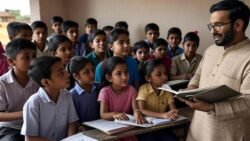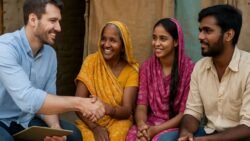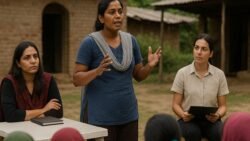Targeted Interventions – Empowering underprivileged communities requires strategic, well-planned interventions that address both immediate needs and long-term development goals. Organizations such as UN DESA emphasize that livelihood programs and educational initiatives are essential in breaking cycles of poverty and promoting sustainable growth. By combining vocational training, skill development, and microfinance opportunities, underprivileged individuals gain access to income-generating activities that enhance financial stability. Similarly, educational programs targeting children and adults equip communities with knowledge, literacy, and life skills necessary to navigate social and economic challenges. At Zenys, we focus on integrating these interventions into holistic community programs, ensuring that families not only meet basic needs but also build capacities for self-sufficiency. Through careful needs assessment, collaboration with local stakeholders, and continuous monitoring, these initiatives create measurable improvements in livelihood, education, and overall well-being, empowering communities to achieve long-term resilience and social equity.
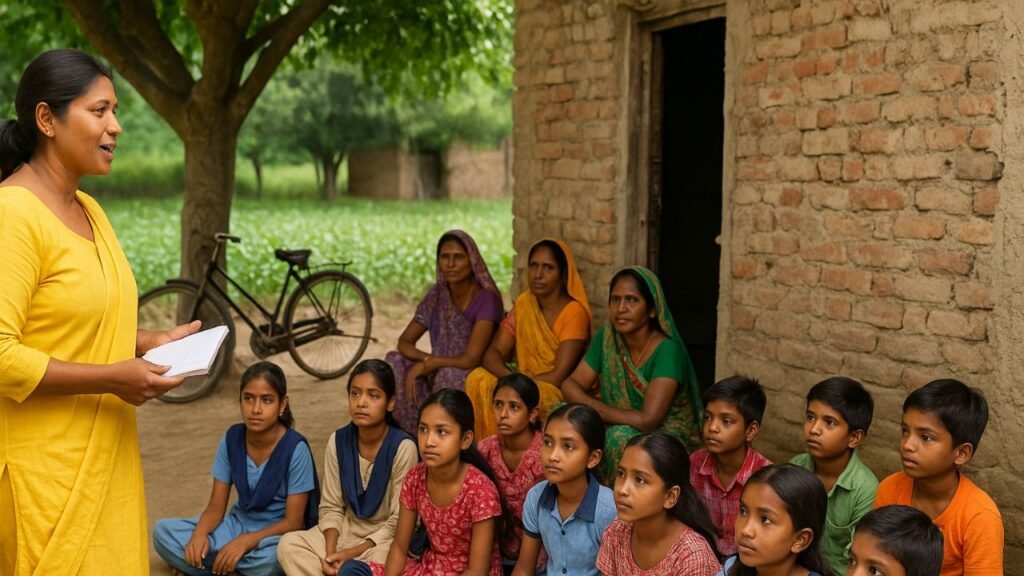
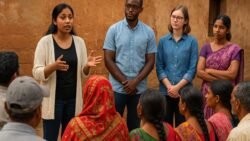 Zenys Advocates for Social Justice Through Programs Focused on Health, Rights, and Gender Equality
Zenys Advocates for Social Justice Through Programs Focused on Health, Rights, and Gender Equality
Livelihood Development Programs and Vocational Training
Targeted livelihood programs are crucial in addressing economic disparities in underprivileged communities. Initiatives such as skill development workshops, vocational training centers, and entrepreneurship support enable individuals to gain employment or start small businesses, thereby generating sustainable income. Studies by World Bank Poverty Programs demonstrate that access to vocational training directly correlates with increased household income, reduced unemployment, and enhanced social inclusion. Programs often focus on practical skills such as tailoring, carpentry, digital literacy, and agro-based activities that meet local market demands. By linking training to microfinance and mentorship, organizations like Zenys ensure that participants can translate their skills into tangible economic opportunities. These interventions empower not only individuals but also families and entire communities, creating a ripple effect that fosters resilience, reduces vulnerability to poverty, and promotes self-reliance across multiple generations.
 Volunteer or Donate to Help Zenys Drive Equality Through Health, Education, and Livelihood
Volunteer or Donate to Help Zenys Drive Equality Through Health, Education, and Livelihood
Education Initiatives and Literacy Programs
Education serves as a powerful tool to uplift communities, offering both children and adults the knowledge and skills needed for a better future. Literacy programs, scholarship initiatives, and remedial classes help bridge gaps caused by socioeconomic disadvantages, ensuring that every child has access to quality education. Reports by UNESCO Education Programs highlight that early childhood education, combined with community engagement, significantly improves learning outcomes and lifelong opportunities. Adult education programs further empower parents and community members by enhancing literacy, numeracy, and vocational skills. At Zenys, we integrate education with community development, creating learning centers and outreach programs that are culturally sensitive and tailored to local needs. By fostering a supportive educational environment, these programs increase school enrollment, reduce dropout rates, and cultivate a culture of learning that strengthens the foundation for sustainable development.
Integrated Community Development Models
Holistic approaches to community development recognize that economic empowerment and education are interconnected and must be addressed simultaneously. Integrated models combine livelihood support, educational initiatives, health awareness, and social inclusion efforts to create a comprehensive framework for sustainable change. Research by UNICEF Innovation Programs shows that multi-sectoral interventions are more effective than isolated projects, as they tackle the root causes of poverty and inequality. By coordinating efforts across different sectors and involving local stakeholders, organizations like Zenys ensure that interventions are contextually relevant, culturally appropriate, and community-driven. These models enable communities to develop leadership skills, participate in decision-making, and mobilize resources effectively, fostering resilience and long-term social transformation.
Monitoring, Evaluation, and Sustainability
Sustainable impact in underprivileged communities depends on systematic monitoring and evaluation of interventions. Collecting data on outcomes, feedback from participants, and impact assessments helps organizations refine strategies and scale successful programs. According to Global Partnership Monitoring & Evaluation, robust evaluation frameworks are crucial for understanding what works, ensuring accountability, and optimizing resource allocation. At Zenys, we implement continuous monitoring systems that track progress in livelihood and education initiatives, measure social and economic outcomes, and identify areas for improvement. This data-driven approach not only strengthens program effectiveness but also ensures that interventions remain adaptive, resilient, and capable of sustaining positive changes for future generations.

